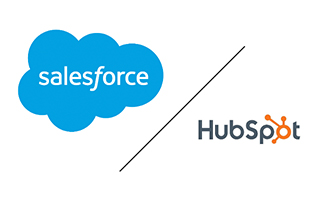Customer Relationship Management (CRM) is a strategy that businesses employ to effectively manage their interactions with customers and build long-term relationships. At its core, CRM focuses on understanding customer needs and preferences and tailoring products, services, and communication to meet those requirements. One of the key components of CRM is data collection and analysis. By gathering customer data, such as purchase history, demographics, and preferences, businesses gain valuable insights that help them better understand their customer base.
Improved Customer Service and Support

With a deeper understanding of customers, businesses can segment their target audience and personalize their offerings. CRM enables businesses to create personalized experiences for customers, delivering targeted recommendations, promotions, and communications that resonate with individual preferences. By customizing their interactions, businesses enhance customer satisfaction and loyalty, fostering long-term relationships, do learn how Hubspot can help your business growth, Salesforce vs Hubspot.
CRM also plays a crucial role in improving customer service and support. Through efficient issue resolution and responsive communication channels, businesses can address customer concerns promptly and effectively. CRM systems often include features such as ticketing systems and customer portals, which allow customers to access self-service options and find solutions to common queries independently. These features enhance customer experience by providing quick and convenient support, increasing customer satisfaction and loyalty.
Efficient Customer Data Management and Analysis
Another benefit of CRM is its impact on sales and marketing efforts. By effectively managing customer data, businesses can identify potential leads, track their interactions throughout the sales funnel, and make data-driven decisions to optimize sales strategies. CRM systems enable businesses to streamline their marketing campaigns, targeting specific customer segments with personalized messages and offers. This targeted approach increases the likelihood of conversion and improves marketing return on investment (ROI).
Moreover, CRM promotes collaboration and communication within organizations. By centralizing customer information and making it accessible to relevant teams, businesses can ensure seamless coordination between sales, marketing, and customer service departments. This collaboration enhances the overall customer experience, as employees have access to the same customer data, allowing for consistent and personalized interactions across touchpoints.
Implementing CRM requires careful planning and consideration. Businesses must select the right CRM system that aligns with their specific needs and goals. Integration with existing systems is crucial to ensure a seamless flow of information and avoid data silos. User adoption is also a critical factor for CRM success. Employees must be trained on using the CRM system effectively, and change management strategies should be implemented to overcome any resistance to adopting new processes and technologies.
While CRM offers numerous benefits, there are challenges to consider during implementation. Maintaining data quality and managing privacy and security are ongoing concerns. Organizations must ensure that customer data is accurate, up-to-date, and protected from unauthorized access. Additionally, user adoption and resistance to change may arise when introducing CRM systems, requiring proactive efforts to address these challenges.
In conclusion, CRM is a powerful strategy that empowers businesses to manage customer relationships effectively. By leveraging customer data, personalization, and targeted marketing, businesses can enhance customer satisfaction, drive sales, and foster long-term loyalty.













